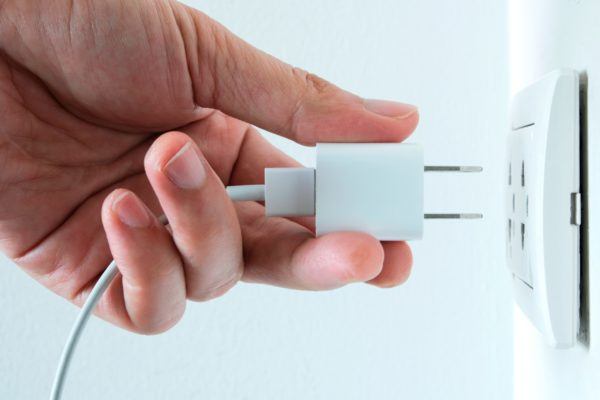
Many homeowners have questions about electrical wiring but are unsure where to start. Are you curious about what might go wrong with your electrical wiring? Are you concerned about safety and want to be sure that you’re taking the necessary precautions for your home or office?
This post will answer some of the most common questions that clients ask us about wiring. We’ve compiled a list of frequently asked questions and some answers to help you out. The blog covers everything from basic concepts to more complex issues so that you can feel confident in your knowledge of the topic. If you have any other questions, don’t hesitate to give us a call — we’re happy to help!
1. Why Do Lights Flicker?
In most cases, flickering lights are caused by a loose light bulb, connector, or faulty light switch. When a light bulb is loose, it makes poor contact with the socket, which can cause an interruption in the flow of electricity. This results in the lightbulb flickering on and off.
If you notice your lights flickering, check the lightbulb and connectors to see if they are loose. Tightening them should stop the flickering. However, if the flickering persists, it could be a sign of a more severe issue, such as a faulty connection in the wiring. Such a problem necessitates the services of an electrician to diagnose and fix the faulty wiring. Flickering lights can also be caused by surge protectors that are overloaded or defective. No matter what the cause of your flickering lights is, it’s essential to take action to avoid any potential hazards.
2. What Is the Difference Between a GFCI Outlet and a Standard Outlet?
Outlets come in standard and GFCI varieties. A GFCI outlet is different from a standard outlet because it has a built-in circuit breaker that trips when it detects an imbalance in the electrical current. GFCI outlets are designed to protect against electrical shock by quickly cutting off power in the event of a ground fault. They are commonly used in areas with a risk of wetness, such as kitchens and bathrooms.
Standard outlets, on the other hand, do not have this safety feature. This means you should only use them in dry areas with no risk of electrical shock. GFCI outlets are required by code in many new homes and are strongly recommended in any home with a risk of dampness or wetness. While they cost slightly more than standard outlets, they provide an extra layer of safety that can be worth the investment.
3. What Causes a Short Circuit?
A short circuit is an electrical circuit that allows current to travel along an unintended path with little or no resistance. This can happen when there is a break in the insulation around a wire, allowing current to “leak” out and touch other parts of the circuit. Short circuits can also occur when two wires come into contact, creating a direct path for current to flow. While short circuits are often caused by accidental damage to a wire, they can also be caused by intentional tampering or faulty manufacturing.
Regardless of the cause, short circuits can lead to severe problems like fires and electrical shocks. The best way to prevent a short circuit is to ensure that all your electrical connections are tight and secure. If you see any damage to the insulation, or you suspect a faulty component, don’t use it until you’ve had a chance to have it checked by a qualified electrician.
4. How Do You Reset Your Circuit Breaker?
A circuit breaker is a safety device that protects your home from electrical fires. If too much electricity flows through the circuit breaker, it trips and shuts off the power. This prevents overloaded circuits and dangerous sparks. If your circuit breaker trips, it means that the circuit is overloaded. To reset it, first turn off all the connected devices in the circuit. Then, locate the tripped circuit breaker in the service panel. Most tripped circuit breakers will be in the middle or off position and have a spring-like feel on their handle. Turn on the circuit breaker by moving its handle to the on position.
If the breaker trips again, it could signify a more severe problem, such as an electrical short. In this case, you should call a qualified electrician to investigate the issue further. Additionally, if your breaker panel is old or outdated, it might be time for an upgrade. A professional electrician can help you determine whether this is the case and recommend a new panel that will better meet your needs.
5. What’s the Difference Between a Fuse and a Circuit Breaker?
Fuses and circuit breakers are two necessary safety devices used in electrical circuits. They both serve the purpose of protecting the circuit from damage that an overcurrent condition can cause. However, there are some critical differences between these two devices. Fuses are designed to be used only once, meaning you must replace them after tripping.
On the other hand, circuit breakers can be reset and reused multiple times. This makes them more convenient to use, but it also means that they must withstand repeated cycling. In terms of cost, fuses are usually cheaper than circuit breakers. However, circuit breakers may offer better protection and be worth the extra cost depending on the application.
6. When Should You Call in an Electrician?
If you’re experiencing electrical problems in your home, it’s essential to know when to call a professional. While you can resolve some issues with some troubleshooting, others may require the skills of an electrician. So, how do you know when to call in an expert? Here are four situations when it’s time to reach out to an electrician:
- If you’re experiencing frequent power outages
- If you’re planning a home renovation
- If you’re experiencing flickering lights or sparks from outlets
- When your circuit breaker keeps tripping
- When you touch your circuit breaker and discover it is hot
7. Why Is the Light Switch Hot?
A hot light switch usually means it’s loose and needs to be tightened. However, it can also signify a more serious issue, such as an electrical short. If your light switch is hot and won’t stay in place when you tighten it, or if it trips the circuit breaker when you turn it on, you should call an electrician for further assistance. In the meantime, try not to use the switch until an expert can repair it.
Contact Us to Answer All Your Electrical Wiring Questions
These are just a few of the most commonly asked questions about electrical wiring. Contact us if you have any further questions or need help with your wiring project. Our experts will be able to help you with anything you need to know about electrical wiring. Black-Haak is a reputable electrical company in operation since 1956. You can trust us to expertly handle all your electrical installations, diagnosis, and repairs for your home and office. We also offer comprehensive heating, cooling, and plumbing services in Fox Valley, Wisconsin and the surrounding areas. Contact Black-Haak for all your electrical needs.

